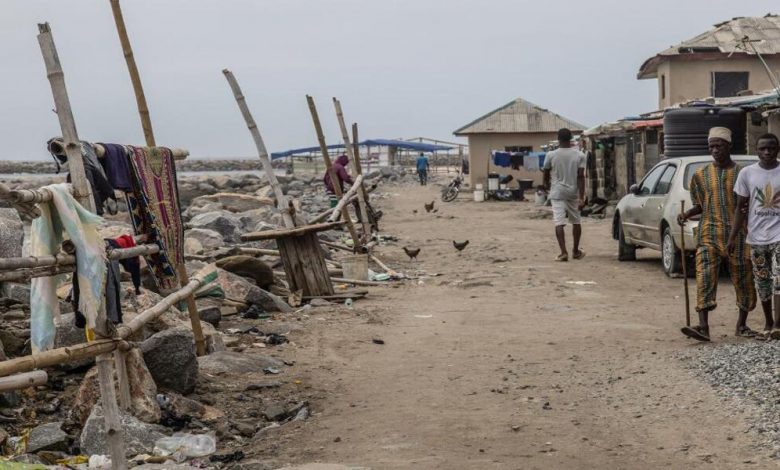
Alpha Beach was a popular tourist destination in Nigeria’s Okun Alfa community on Lagos Island. However, the resort was destroyed by tidal surges caused by the climate crisis and poor urban design, leaving the Okun Alfa community and those around them paralysed.
According to a sea-level rise forecast from the University of Plymouth, a rise of merely one to three metres in Nigeria’s coastal ecosystems, including Lagos, a low-lying metropolis on the Atlantic coast, “will have a catastrophic effect on human activities”.
According to scientists, if emissions do not drastically reduce, a rise of up to one metre might occur by 2100.
Oladotun Hassan, the convener of Okun Alfa’s ocean surge response, believes that local funding would be inadequate to handle Nigeria’s climate challenges. He also mentions the country’s need for increased environmental investment.
President Muhammadu Buhari’s spokesperson, Garba Shehu, said that additional financing was needed to address issues like eroding coastlines. It was a key proposal from Nigeria at COP26.
“We are 100 per cent committed to the overall (goal) of zero-emissions … Then, of course, we want the rich nations to fulfil their obligation by paying the $100 billion in the Paris Accord,” Mr Shehu told CNN.
Similade Adeodun, a Nigerian environmental activist, claims that “mismanagement” in the country has prevented it from receiving enough money for environmental protection.
“Because of mismanagement, Nigeria is unable to access enough funding that will accelerate our resilience and adaptation projects and programs,” Mr Adeodun said.
